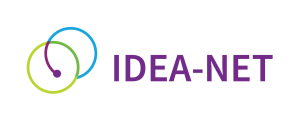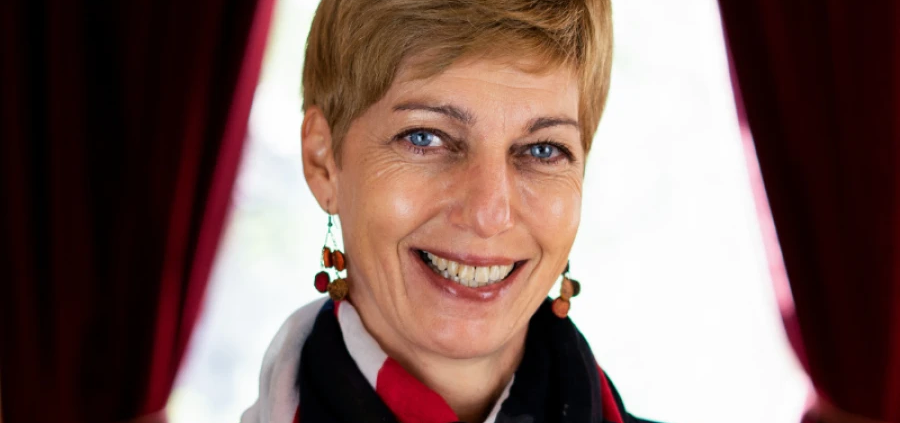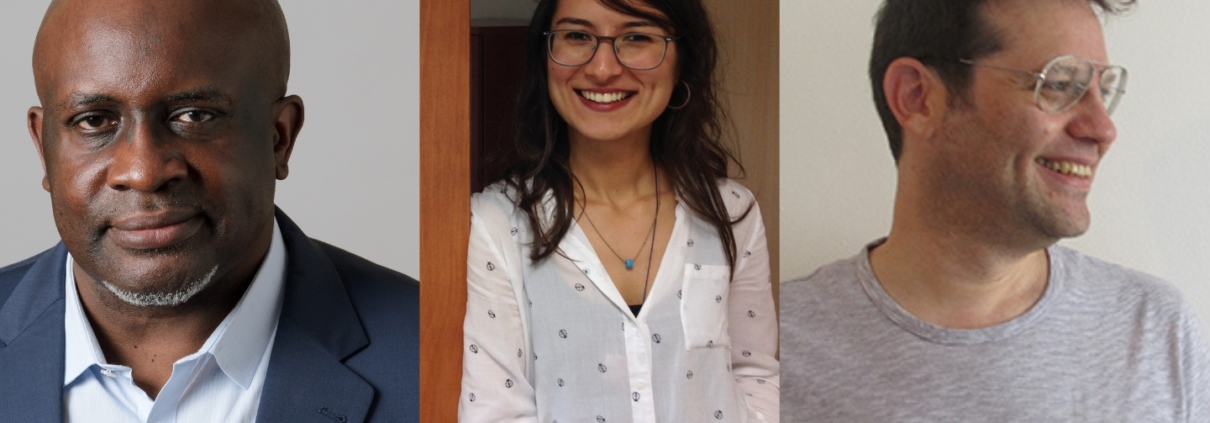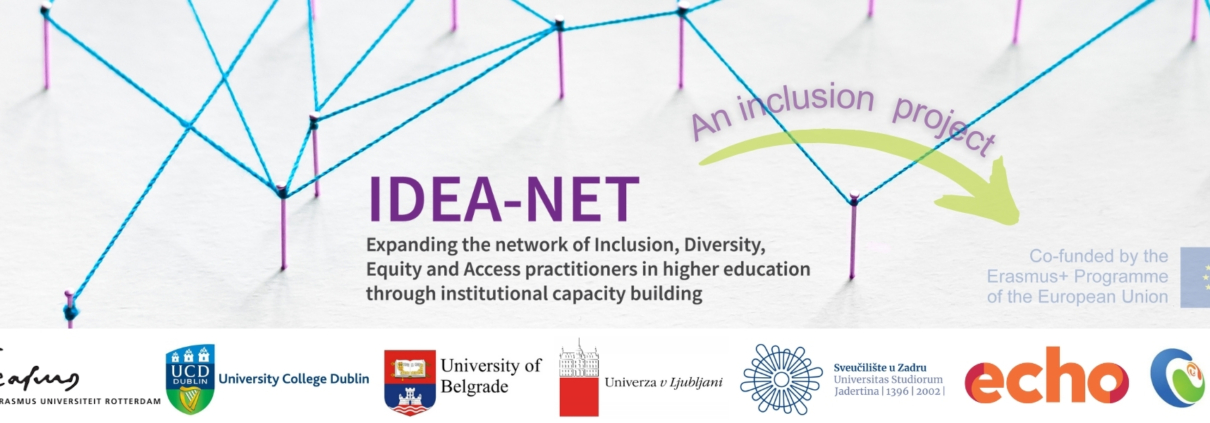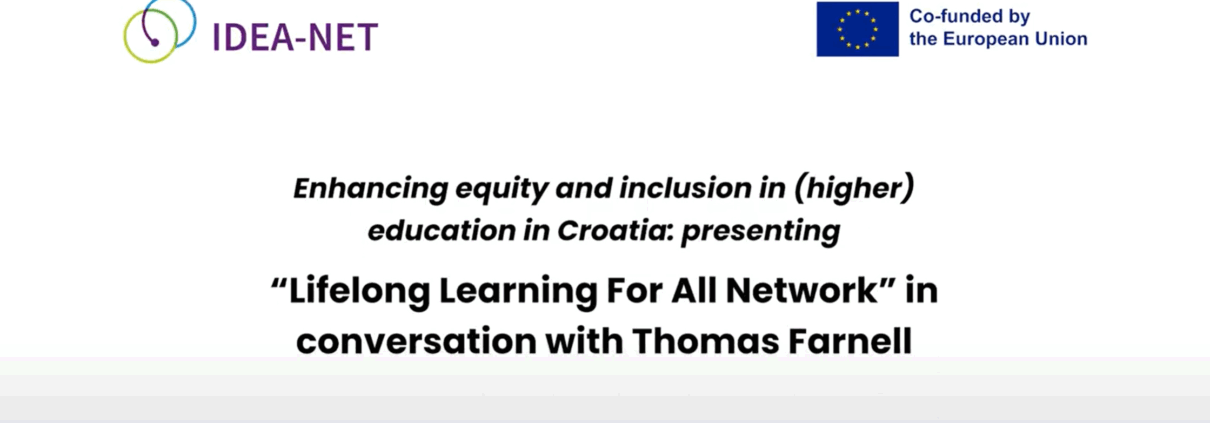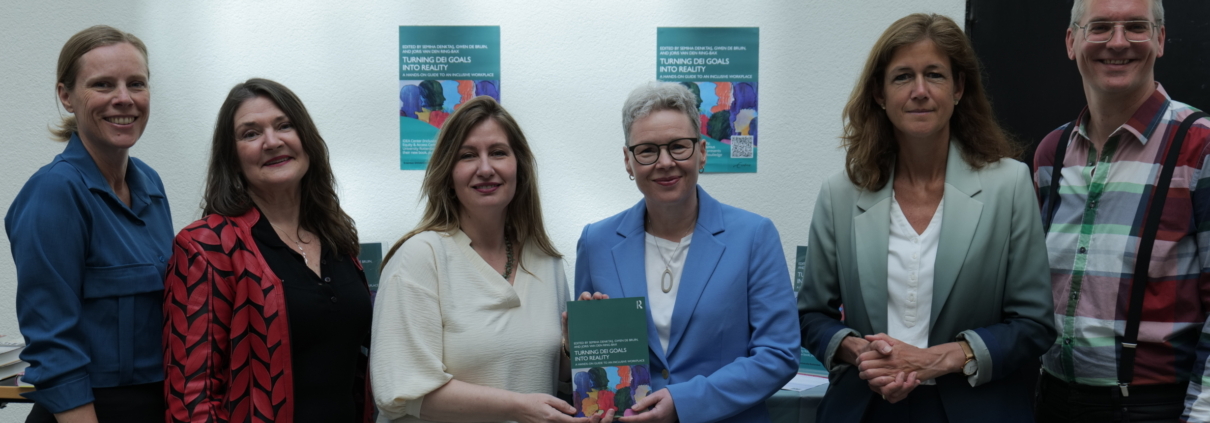Assoc. prof. dr. Petra Videmšek is responsible for the professional management of the new Office for Equality and Inclusion (PEV) at the University of Ljubljana. Her area of expertise focuses on involving services users to develop social work education, as well as on the empowerment and advocacy of people with mental illness and intellectual disabilities. We reached out to find out:
The office’s top priorities
The fundamental aim of the Equality and Inclusion Office (PEV) is to contribute to the development of a general culture of inclusion, tolerance and integration in an open academic community.
This includes providing information on the principles of equality and legal foundations that ensure equal opportunities and dignity; to point out violations; and to systematically ensure integration in the academic community.
To this end, the office is linked to the work of the Student Ombudsman Service, the Student Affairs Committee, the Psychosocial Counselling Services and the activities of the Equality Plan Implementation Working Group.
What expertise are you bringing to the table?
My knowledge of social work is certainly very useful, because in social work we have developed the concepts of participation, empowerment and, above all, the concept of co-creation. My work is based on theories developed by people who have experienced exclusion themselves. The slogan “Nothing about us without us” is a guideline for the work of the office. We do not want to plan from the top down, but from the bottom up. We start from the needs and plan further activities around these needs. I believe this is the most effective way of providing support, based on partnership and dialogue.
Of course, my knowledge of social work alone is not enough, an interdisciplinary approach is needed to ensure inclusion. Teamwork and an interdisciplinary approach are essential to developing an inclusive and compassionate community.
In IDEA-net’s first webinar, three university cases – from the project’s Compendium of 50+ IDEA practices* – were invited to provide further perspective on the road ahead. The geographical diversity of the speakers reflects, in part, the continental reach of universities which have contributed to the compendium. Here are some of the reflections from our speakers:
Driving forces for bold IDEA practices
Pr Renato Cymbalista from the University of São Paulo underscored how affirmative action policies are controversial by nature. Today, approximately 50% of enrolled students at USP are admitted through such policies. He notes however, how integral such actions are to the university’s reparation mission. Backing from other progressive universities and country-wide support for reparation have been major drivers for such IDEA practices.
Collaborating for scaling-up IDEA
Pr Frank Tuitt highlighted the commitment of University of Connecticut and the state of Connecticut to address racism as a public health crisis. The Centre for Truth, Racial Healing, and Transformation (TRHT) is one of the flagpship initiatives of UCONN. The TRHT initiative is made possible by the American Association for Colleges and Universities and the W.K. Kellogg Foundation, with UCONN being one of 78 collaboratory institutions in the United States.
Creating more opportunities for unity
Ms Pelin Deniz from Middle East Technical University emphasised the importance of students taking more active roles in the delivery of universities’ IDEA practices. She refers to her experience having studied clinical physcology at METU and is now fulfilling this role at the disability support office of her alma mater. More interaction between IDEA units is necessary as she noted the effect of support staff having too little time to collectively process their experiences in implementing and developing IDEA practices.
IDEA-net is an Erasmus+ project which focused on inclusive higher education. The project expanded the network of inclusion, diversity, equity and access (IDEA) practitioners in higher education through institutional capacity building. Over three years, the IDEA-net team developed the following practical tools that work across different cultures to build capacity on IDEA.
Investigating the status quo
The first of the project’s key achievements is its compendium of 60+ IDEA practices. This is the most viewed resource on the project website. These aren’t just theories; they’re real case studies from 28 countries across six global regions.
Each case study offers a reflective look at how institutions have addressed IDEA challenges. They reveal what motivated these practices, how they’re organised, which policies support them, and how institutions tackle sustainability issues.
The project team created and moderated the LinkedIn Group “An alliED network for inclusion in education”. This community became a vital space for sharing the use cases and other resources. It became also a forum to challenge assumptions about how IDEA initiatives can succeed amid changing political and economic climates.
Bringing people and contexts together
A five-module capacity building framework provides modularised resources for faculty, staff, students and leadership. Access the online capacity building modules or download the PDF version. As a practical tool, the framework breaksdown complex IDEA concepts into actionable workshop activities.
The modules cover:
- IDEA Concepts and Frameworks
- Creating safe, brave and accountable spaces
- Recognising microaggressions and being an active bystander
- Inclusive Curriculum and Pedagogy
- Next steps for IDEA at your Institution
We made sure these modules work in different national, regional, and institutional settings. The tool was tested in person at universities in Belgrade, Ljubljana, and Zadar. Then, it was improved for online use.
A step-by-step guide that works
The guideline toolkit for setting up an IDEA office is another practical output from the IDEA-net projecft. Based on nine manageable steps including how to identify need and underrepresented groups to designing optimal IDEA structures.
What sets this resource apart? It doesn’t shy away from difficult realities. The toolkit addresses how to handle conservative opposition, secure leadership buy-in, and when incremental approaches might prove more sustainable than radical change.
Our approach: making change sustainable
The IDEA-net project shows what happens when context in education planning matters. We merged our networks’ expertise with our drive for innovation. Together, we created resources that institutions are already using and adapting.
Higher education faces complex inclusion challenges that can’t be solved with one-size-fits-all solutions. Projects like IDEA-net prove that thoughtful, collaborative approaches can create lasting change — one institution and one conversation at a time.
Thomas Farnell is a Higher Education Policy Expert from Institute for the Education Development (Croatia) and the leader of the project team behind “Lifelong Learning for all Network”. The Network is the largest initiative in Croatia for tackling educational inequality and has yielded valuable research insights and policy recommendations for addressing educational inequalities.
Pavao Parunov is a research assistant at the University of Zadar’s Department of Sociology. His research is focused on institutional contributions to social inequalities. In this podcast, Thomas presents the Lifelong Learning for all Network and discusses ongoing opportunities with Pavao.
A synopsis of the discussion
As Croatia’s largest initiative tackling inequality, the Network has produced valuable research insights and policy recommendations at all levels of education. This includes early childhood education and care, primary, secondary, higher and adult education.
What you’ll cover during Thomas and Pavao’s conversation:
- How to turn from specific challenges at each level of education to an integrated, lifelong learning approach.
- How to ensure a policy oriented approach, rather that an overly academic approach.
Watch the conversation:
IDEA Center of Erasmus University Rotterdam proudly launched the book ‘Turning DEI Goals into Reality – A Hands-On Guide to an Inclusive Workplace’ (published by Routledge – Taylor & Francis Group). The first copy of the book was presented to Prof. Mia Rönnmar, Rector of Malmö University, at the European University Alliance UNIC Thematic Conference in Malmö.
What is the most important advice that the book gives?
In today’s dynamic organisational landscape, striving for a diverse workforce does not automatically translate into an inclusive workplace. The book provides practical insights and hands-on tools for how everyone can work towards an organisation that is more inclusive, diverse, equitable, accessible, and ultimately more enjoyable for all.
Featured are key terms and definitions, drivers and accelerators of increased attention to inclusion, diversity, equity and access, and topics such as connection and engagement, inclusive organisational culture, communication HR policies, monitoring and research, and leadership.
Why is the book relevant to universities wanting to set up an IDEA office?
One of the success factors is the truly integrated approach, as it deals with all elemental parts of an institution, such as education, research, engagement, HR, outreach, communication.
The model presented in the book has already been successfully applied within organisations and can have impact straight away. If you’re in HR, you can read the chapter on inclusive HR and start changing processes and systems today. If you are in communications, you can read the chapter about inclusive communication and begin immediately. Through providing a holistic, integrated approach for recognising and then transforming – old and ingrained – systems and mechanisms, as well as adapting human behaviour and ways of thinking, this book helps readers to take tangible and impactful steps in creating an inclusive organisation.
The book is relevant to anyone looking for a guide to implement IDEA practice immediately – in HR, in communications, in consulting, in research, in organisational coaching, and in the boardroom.
